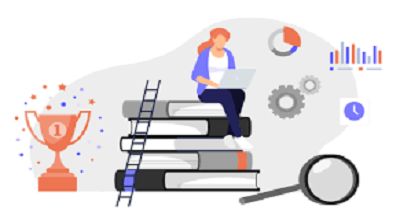Lifelong Learning
Lifelong learning is important for several reasons:
- Adaptation to Change: In a rapidly changing world, new technologies, industries, and job roles are constantly emerging. Lifelong learning allows individuals to adapt to these changes and remain relevant in the workforce.
- Career Advancement: Continuously acquiring new skills and knowledge can lead to career advancement. It opens up opportunities for promotions, raises, and the ability to switch to more desirable job roles.
- Personal Growth: Learning is not just about career benefits. It also promotes personal growth and development. It can boost self-esteem, increase confidence, and provide a sense of accomplishment.
- Problem Solving: Lifelong learning enhances your problem-solving skills. As you learn new concepts and perspectives. You become better equipped to tackle complex challenges in both your personal and professional life.
- Innovation: Lifelong learners are often more innovative. They can apply knowledge from diverse fields to come up with creative solutions and ideas.
- Cognitive Health: Engaging in learning activities keeps the brain active and can help reduce the risk of cognitive decline and diseases like Alzheimer’s.
Read More…
- Personal Satisfaction: Learning can be intrinsically rewarding. The process of acquiring new knowledge or mastering a new skill can bring a sense of fulfillment and satisfaction.
- Adaptation to Different Life Stages: Lifelong learning is not limited to one phase of life. It can be adapted to different life stages, whether you’re a student, a professional, a parent, or a retiree.
- Social Interaction: Learning often involves interacting with others. Whether through classes, workshops, or online communities. This fosters social connections and networking opportunities.
- Global Citizenship: In an interconnected world, understanding different cultures, languages, and global issues is crucial. Lifelong education helps individuals become more informed and responsible global citizens.
- Resilience: Lifelong learners are better equipped to face challenges and setbacks. They have a growth mindset that enables them to bounce back from failures and keep moving forward.
- Future-Proofing: With automation and artificial intelligence on the rise, some jobs may become obsolete. Lifelong learning helps individuals stay ahead of these changes and transition to new roles.
In summary, lifelong learning is not just a means to an end. It’s a mindset and a lifestyle that can lead to personal, professional, and societal benefits. It equips individuals with the skills and knowledge they need to thrive in a dynamic and evolving world.
Benefits of Lifelong Learning
Lifelong learning offers a wide range of benefits, both personal and professional. Here are some of the key advantages:
- Continuous Personal Growth: Lifelong learning enables individuals to expand their horizons and grow intellectually, emotionally, and socially throughout their lives.
- Career Advancement: Acquiring new skills and knowledge can lead to career advancement, better job opportunities, and increased earning potential.
- Increased Job Security: Lifelong learners are more adaptable and can pivot into new roles or industries if their current jobs become obsolete or are affected by economic changes.
- Enhanced Problem-Solving Skills: Learning new subjects or skills improves critical thinking and problem-solving abilities, which can be applied in various aspects of life.
Extra Benefits…
- Improved Decision-Making: Lifelong learners tend to make more informed decisions because they have a broader knowledge base and better analytical skills.
- Greater Creativity: Exposure to diverse ideas and experiences through learning can boost creativity and innovation.
- Boosted Confidence: As individuals gain new knowledge and skills, they often experience an increase in self-confidence and self-esteem.
- Adaptability: Lifelong learners are more adaptable to change and better equipped to face challenges in a rapidly evolving world.
- Networking Opportunities: Engaging in learning often involves interacting with peers, instructors, and mentors, providing opportunities to expand one’s professional network.
Extra Benefits…
- Enhanced Communication Skills: Learning can improve communication skills, including writing, speaking, and active listening. Which are valuable in both personal and professional settings.
- Personal Fulfillment: Lifelong learning can be intrinsically rewarding, bringing a sense of accomplishment and personal fulfillment.
- Cognitive Health: Continuously engaging in learning activities can help maintain cognitive health, reducing the risk of cognitive decline as individuals age.
- Global Perspective: Learning about different cultures, languages, and global issues fosters a broader worldview and promotes global citizenship.
- Resilience: Lifelong learners tend to develop a growth mindset, which helps them bounce back from setbacks and view failures as opportunities for growth.
- Positive Influence: Lifelong learners often serve as positive role models for their peers and inspire others to pursue learning and personal development.
- Contributions to Society: Lifelong learners can contribute to the betterment of society by applying their knowledge and skills to solve pressing issues and make a positive impact.
- Improved Quality of Life: Lifelong learning can lead to a richer, more fulfilling life by providing opportunities to explore new interests and hobbies.
- Personal Empowerment: Learning empowers individuals by giving them the tools to take control of their lives, make informed decisions, and pursue their passions. Overall, lifelong education is a powerful tool for personal and professional development.
That can lead to a more enriching and fulfilling life. It equips individuals with the skills and knowledge needed to adapt, thrive, and contribute to the ever-changing world around them.
